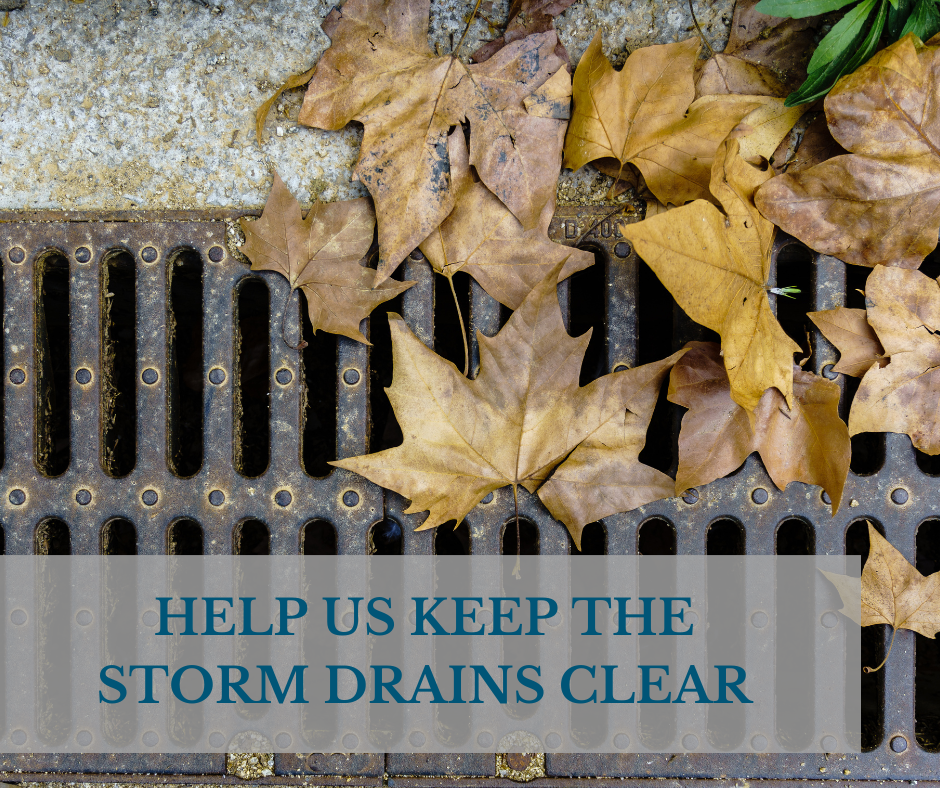The changing leaves of fall are beautiful, but when they clog storm drains, it causes problems. We need your help to keep leaves and debris out of the drains.
When too many leaves get into the gutters, they can clog the storm drain inlets and back up rainwater. This can cause standing water that damages roadways, creates a driving hazard, and may flood adjacent properties. The City has full-time crews out doing their best to keep the gutters and storm drains clear of leaves and debris, but we can’t keep up with all of the trees dropping their leaves this time of year.
What can you do to help?
Here are tips to help you keep leaves out of storm drains:
- Regularly rake and sweep your yard: Keep your yard free of fallen leaves and debris by regularly raking and sweeping. This prevents leaves from washing into the storm drain during rainfall.
- Install gutter guards: Use gutter guards and leaf screens on your roof gutters to prevent leaves and other debris from entering your gutter system.
- Compost or mulch leaves: Instead of allowing leaves to accumulate near storm drains, collect them and compost or mulch them. This not only reduces the volume of leaves but also provides nutrient-rich mulch for your garden.
- Properly dispose of yard waste: When disposing of yard waste, such as leaves and branches, make use of designated collection services. Avoid raking leaves into the street or near storm drains, as this increases the risk of blockages.
If you notice leaves or other debris clogging the drains, please take a few minutes to clear the gutters and drains. When the leaves and all their decomposing bits wash down the street and into the storm drain, they make their way into rivers and lakes, where the nutrients will feed unwanted algae growth next summer. This can limit recreational activities, create potential health risks, and cause fish kills due to low dissolved oxygen.
While the leaves are a problem for the gutters and drains, they can be beneficial for your yard. You can mow over dry leaves on your lawn using a mulching blade and leave them in place to provide nutrients for your lawn. Spread the leaves over your garden and flower beds and till them in to decompose. Restocking the soil with nutrients and organic matter will provide a healthier soil for your flowers and vegetables next year. You can also rake up and bag the leaves to prevent them from clogging the storm drains.
Thank you for your help!



